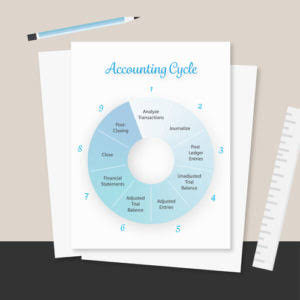What Is the Meaning of Outstanding Checks and Their Financial Impact?

If a match is found, the claimant must submit a request online or by mail, along with supporting documentation such as a government-issued ID or proof of the original transaction. Escheatment applies only when there has been no owner-initiated activity during the dormancy period. If the payee has communicated with the issuer or requested a replacement check, the funds are not considered abandoned. The issuer must also make a reasonable effort to contact the payee before transferring the funds to the state. You may be able to file for unclaimed money owed to you, or that was owed to a deceased relative if you are their legal heir.
Risks Associated with Outstanding Checks

Eisen’s platform offers real-time insights into your escheatment liabilities across all states. You can effectively manage your financial planning and resource allocation by forecasting the funds due. Our system automatically updates with the latest state regulations, ensuring you have the most current information at your fingertips. This proactive approach helps you stay bookkeeping ahead of deadlines and avoid unexpected liabilities. While understanding the issuer’s responsibilities is crucial, you need to know what happens if a check is never cashed and how it impacts both parties. After fulfilling due diligence requirements, holders must submit an annual report to the Texas Comptroller’s office by July 1.
Regularly reviewing checking accounts
- With Electronic Payments implemented, processing times are expedited and payment accuracy increased.
- This typically includes sending written notices to the payee’s last known address within a specified time frame prior to escheatment.
- Before turning over unclaimed checks, businesses must follow strict notice and reporting procedures under Chapter 74 of the Texas Property Code.
- To avoid having outstanding checks, consider using electronic payment methods like direct deposit or automated clearing house (ACH) transfers whenever possible.
- On the payor side, it creates the need to carefully track uncashed checks so that money doesn’t get spent on other things.
- Non-compliance can result in penalties, underscoring the importance of staying informed about state-specific obligations.
Void checks require careful documentation and accounting adjustments to maintain outstanding official checks accurate financial records. In some jurisdictions, uncashed checks may be classified as unclaimed property, requiring compliance with escheatment laws. These laws mandate businesses to remit unclaimed funds to the state after a specified dormancy period.
Outstanding Checks: Navigating Outstanding Checks: The Unsung Heroes of Bank Reconciliation

Call or email payees who fail to deposit checks and ensure that the check was, in fact, received. If that doesn’t work, send a letter informing payees the check has not been presented and outstanding check officially request they notify you if they have not received the payment. As long https://moraleocain.com/2023/05/04/corporate-disbursement-services/ as you know not to spend money promised to someone else, avoiding expensive consequences such as overdrafts or insufficient funds fees is possible. Putting a stop payment on a misplaced or stale check may prevent issues down the road, especially if there’s a concern that it could fall into the wrong hands. However, this doesn’t always solve the problem, as it costs a fee to the payor and is only valid for a limited time.
- An outstanding check refers to a written check payment that has not been deposited or cashed by the payee.
- When it comes to managing business accounts, keeping track of checks that are outstanding is crucial.
- Have you ever experienced the frustration of receiving an outstanding check due to insufficient funds?
- Deadlines are critical in the escheatment process; missing them can result in costly penalties.
- This will not only improve the accuracy of financial records but also contribute to the overall success and reliability of the bank reconciliation process.
- Taking a proactive approach to resolving outstanding checks not only helps maintain financial stability but also fosters a positive relationship with the bank.
- Depending on the jurisdiction, the account holder may be required to pay not only the original amount of the check but also additional legal fees and court costs.
A check that was written moments, weeks, or even months ago is considered outstanding if it has not yet been cashed or deposited. Understanding the consequences of having outstanding checks can be significant for businesses in various ways. Checks don’t last forever, and their validity usually depends on the check type and the issuer’s guidelines.
One of the main differences are the outstanding checks that have been recorded in the accounting system but haven’t been recorded by the bank. As part of resolving outstanding checks, it is crucial to go through a reconciliation process to ensure that all the checks are properly accounted for. This involves comparing the bank statement with the individual’s own records and identifying any discrepancies.

The Role of Outstanding Checks in Bank Reconciliation

Non-compliance can result in penalties, underscoring the importance of staying informed about state-specific obligations. Outstanding checks play a pivotal role in the bank reconciliation process, serving as a bridge between the company’s cash records and the bank’s records. They represent checks that have been written and recorded in a company’s cash ledger but have not yet been cleared by the bank. This discrepancy arises due to the time lag between the check being issued and it being processed by the bank.
Implement Electronic Payments
- The delay in clearing can occur for various reasons, such as the recipient not depositing the check promptly or postal delays.
- If you discover a check has passed its expiration date, there are a few ways to manage the situation effectively.
- Moreover, careful recordkeeping could prevent timely bill payments from going unnoticed.
- Having funds transferred via direct electronic channels not only streamlines accounting processes but also minimizes errors from manual check cutting/reconciliation.
- In cases of checks, this is somewhat difficult because if the check is unclaimed, it is most likely due to already-existing difficulties in contacting the individual at their address on file.
- Explore the financial implications of outstanding checks, including their effects on account balances and reconciliation processes.
Willful noncompliance or fraudulent reporting can lead to civil litigation or administrative sanctions. Businesses with a history of noncompliance may face more frequent audits, increasing the risk of further penalties. Payroll checks must be claimed within one year, while refunds and vendor payments usually follow the three-year rule. For example, consider a small business that issues a check for a significant purchase but the vendor fails to cash the check within a reasonable time.
